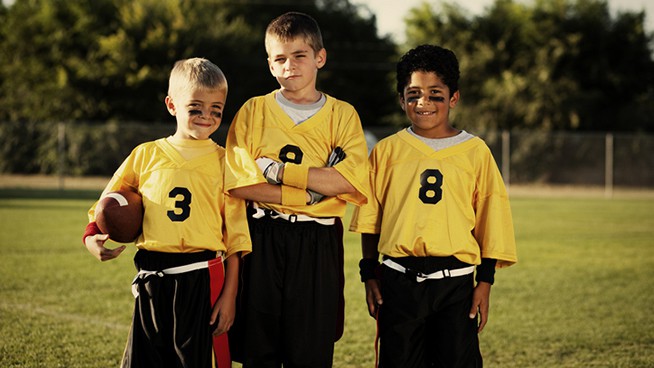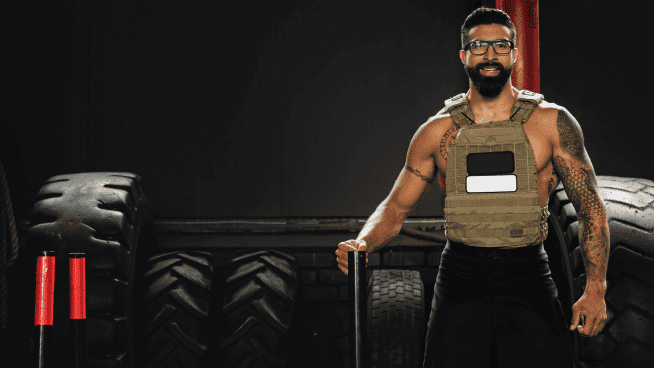Cagefighters, who participate in fierce one-on-one battles, aren’t street bums forced into submission. They’re finely tuned athletes, and they spend endless hours preparing for their short bouts. To prove it, we hit up Urijan Faber, the current World Extreme Cagefighting [WEC] featherweight champion, to get the goods on everything—from his high school days to how he prepares for a fight. On June 1, in Sacramento, Faber will be putting his title on the line against Jens Pulver.
STACK: Did you participate in sports when you were younger?
Faber: I played football from third grade through high school. I did a little bit of track and also wrestled throughout high school and during the off-season.
STACK: Did playing those sports help mold you into a WEC fighter?
Faber: Being a competitor throughout my life has definitely helped me when I’m on the big stage. More than anything, it’s the work ethic I’ve learned, how to take direction from coaches and stuff like that.
STACK: When did you first become interested in fighting, and when did you start preparing yourself for that career?
Faber: Since I can remember, I’ve been a huge fan of contact sports and fighting. I think the fundamentals of wrestling—where drilling and conditioning are a big emphasis—set the groundwork for how mixed martial arts is learned and applied.
STACK: What’s your training regimen when you’re preparing for a fight?
Faber: I do a lot of boxing, kickboxing, wrestling, jujitsu and mixed martial arts. I also mix in some running and plyometrics, but that revolves around the beginning or end of mixed drilling and live drills.
STACK: How does your training differ from preparing for wrestling or football?
Faber: For me it’s not much different; it’s just different techniques. It’s the same mentality. I’m going to give 100 percent and try to give myself every advantage to win.
STACK: How do you mentally prepare for a fight?
Faber: My mental preparation is done in practice. When you put in your time, and you know you’re prepared and have done everything to prepare, it gives you a big mental advantage. I also visualize putting my offense towards my opponent and think about being a winner.
STACK: Do you scout an opponent before a fight?
Faber: When there is tape available, I definitely look at strengths and weaknesses. I don’t necessarily create specific game plans, but I work on certain areas where I want to take the fight.
STACK: Is nutrition a big part of your training?
Faber: Nutrition is definitely a big emphasis in my life. I had a homeopathic upbringing, so it has always been important. These days I’m trying to [eat] a lot of calories, because I burn so much [during] training, so I have to eat all the time.
STACK: What advice would you offer to a young athlete who’s interested in cagefighting?
Faber: Surround yourself with the best people you can. Be consistent and keep learning. It’s an extremely technical game, and the guys who stop learning are the ones who are average. The guys who continue to learn new techniques become really great.
RECOMMENDED FOR YOU
MOST POPULAR
Cagefighters, who participate in fierce one-on-one battles, aren’t street bums forced into submission. They’re finely tuned athletes, and they spend endless hours preparing for their short bouts. To prove it, we hit up Urijan Faber, the current World Extreme Cagefighting [WEC] featherweight champion, to get the goods on everything—from his high school days to how he prepares for a fight. On June 1, in Sacramento, Faber will be putting his title on the line against Jens Pulver.
STACK: Did you participate in sports when you were younger?
Faber: I played football from third grade through high school. I did a little bit of track and also wrestled throughout high school and during the off-season.
STACK: Did playing those sports help mold you into a WEC fighter?
Faber: Being a competitor throughout my life has definitely helped me when I’m on the big stage. More than anything, it’s the work ethic I’ve learned, how to take direction from coaches and stuff like that.
STACK: When did you first become interested in fighting, and when did you start preparing yourself for that career?
Faber: Since I can remember, I’ve been a huge fan of contact sports and fighting. I think the fundamentals of wrestling—where drilling and conditioning are a big emphasis—set the groundwork for how mixed martial arts is learned and applied.
STACK: What’s your training regimen when you’re preparing for a fight?
Faber: I do a lot of boxing, kickboxing, wrestling, jujitsu and mixed martial arts. I also mix in some running and plyometrics, but that revolves around the beginning or end of mixed drilling and live drills.
STACK: How does your training differ from preparing for wrestling or football?
Faber: For me it’s not much different; it’s just different techniques. It’s the same mentality. I’m going to give 100 percent and try to give myself every advantage to win.
STACK: How do you mentally prepare for a fight?
Faber: My mental preparation is done in practice. When you put in your time, and you know you’re prepared and have done everything to prepare, it gives you a big mental advantage. I also visualize putting my offense towards my opponent and think about being a winner.
STACK: Do you scout an opponent before a fight?
Faber: When there is tape available, I definitely look at strengths and weaknesses. I don’t necessarily create specific game plans, but I work on certain areas where I want to take the fight.
STACK: Is nutrition a big part of your training?
Faber: Nutrition is definitely a big emphasis in my life. I had a homeopathic upbringing, so it has always been important. These days I’m trying to [eat] a lot of calories, because I burn so much [during] training, so I have to eat all the time.
STACK: What advice would you offer to a young athlete who’s interested in cagefighting?
Faber: Surround yourself with the best people you can. Be consistent and keep learning. It’s an extremely technical game, and the guys who stop learning are the ones who are average. The guys who continue to learn new techniques become really great.










